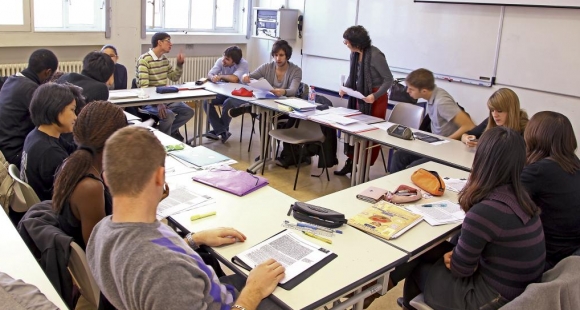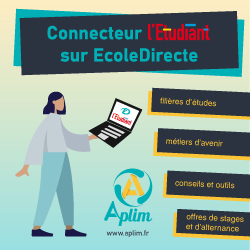
A Safer Way to Grade Exams
Every year, the organizers of prestigious French university entrance exams live in fear of having to make students retake the test if their papers get lost or stolen. Scanning offers one solution. Six elite French universities, École Polytechnique, ESPCI ParisTech and the four Écoles normales supérieures, have decided to go one step further.
After taking digital grading on a test run in 2013, these schools made the leap in 2014 and now use tablets to grade their common written entrance exam. This allows them to avoid the risks associated with grading physical papers.
Michel Gonin, entrance exam director at École Polytechnique, describes the process, saying, “We have just one week to scan roughly 50,000 exams and upload them onto all 90 tablets before the start of the grading period.” He adds, “Security is of course our top concern. If a grader loses his or her tablet, we can erase the data remotely. We archive all of the scanned exams and hold onto the paper copies for one year.”
The switch cost the six schools a total of €27,000 at €300 per tablet. Retaking an exam causes applicants a lot of stress. What’s more, holding a retake day is an expensive ordeal. In light of these risks, these six schools feel that going digital is an investment well worth making.
Learning Physics with Smartphones
Joseph Fourier University (UJF) in Grenoble offers an unconventional approach to studying physics. Classroom experiments feature a surprising, pocket-sized lab, the smartphone.
A student stands at the front of the classroom, slowly spinning a charger cable attached to an iPhone. This is a first-year physics class at UJF. The student is demonstrating the principles of mechanics through the Foucault pendulum experiment.
Physics professor Joël Chevrier introduced this new teaching method to UJF. For Chevrier, the fact that a smartphone has an accelerometer, a magnetometer, a gyroscope, two video cameras and a microphone makes it “a pocket-sized lab, perfect for studying oscillation, free fall and trajectory. Our lab facilities are more technologically advanced but my first-year students aren’t ready for the lab yet.”
While the student perfects his pendulum technique, the phone sends information to a computer that creates a pivot table with the data. This information is then projected onto the blackboard so that students can track the measurements and witness the principles of mechanics in real time.
Chevrier credits the Iphysicslabs column of The Physics Teacher, the journal of the American Association of Physics Teachers. Professors at the University of Lyon and a group of French high school teachers are exploring other smartphone lab applications, among them lessons in acoustics, cartography and life sciences. The possibilities are endless.
Course Evaluation Site Gets Top Marks
Two students from top French university Télécom ParisTech have given their peers the chance to rate their classes on Shapter, an online platform they created in January 2012. The site has been such a success that they now have plans to bring it to other schools.
Shapter co-founder Ulysse Klatzmann explains that “there are so many options that students often choose classes at random.” That is why he and classmate Adrien Tibère-Inglesse decided to design a site to help students make informed decisions.
However, Shapter is not intended to replace the course evaluations that are often required by elite schools. Adds Klatzmann, “It’s a bonus for schools. Students get to share their thoughts with their peers and rising classes benefit from their insight.” The school’s management stands behind the site but also reserves the right to address any comments that get out of hand.
According to undergraduate studies dean Jean-Pascal Jullien, “Now students can take better advantage of course offerings when they’re planning their schedule.” Shapter even makes personalized course recommendations using an algorithm similar to that of Amazon. The next step is to link up with businesses interested in promoting their job openings among likely candidates at the school.






